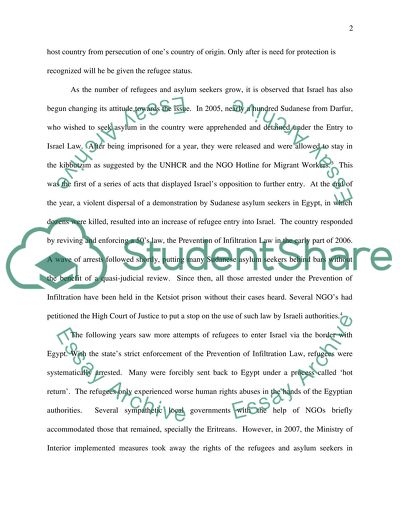Cite this document
(“The Situation of African Refugees and Asylum Seekers in Israel Essay”, n.d.)
The Situation of African Refugees and Asylum Seekers in Israel Essay. Retrieved from https://studentshare.org/social-science/1559822-the-situation-of-african-refugees-and-asylum-seekers-in-israel
The Situation of African Refugees and Asylum Seekers in Israel Essay. Retrieved from https://studentshare.org/social-science/1559822-the-situation-of-african-refugees-and-asylum-seekers-in-israel
(The Situation of African Refugees and Asylum Seekers in Israel Essay)
The Situation of African Refugees and Asylum Seekers in Israel Essay. https://studentshare.org/social-science/1559822-the-situation-of-african-refugees-and-asylum-seekers-in-israel.
The Situation of African Refugees and Asylum Seekers in Israel Essay. https://studentshare.org/social-science/1559822-the-situation-of-african-refugees-and-asylum-seekers-in-israel.
“The Situation of African Refugees and Asylum Seekers in Israel Essay”, n.d. https://studentshare.org/social-science/1559822-the-situation-of-african-refugees-and-asylum-seekers-in-israel.


